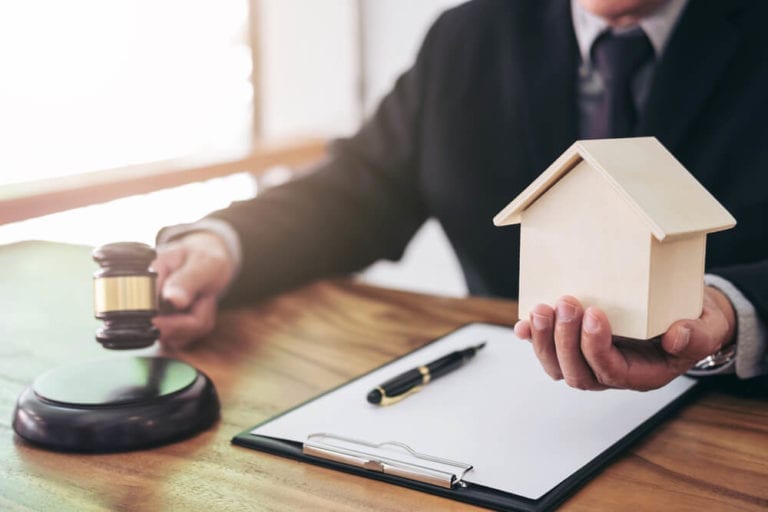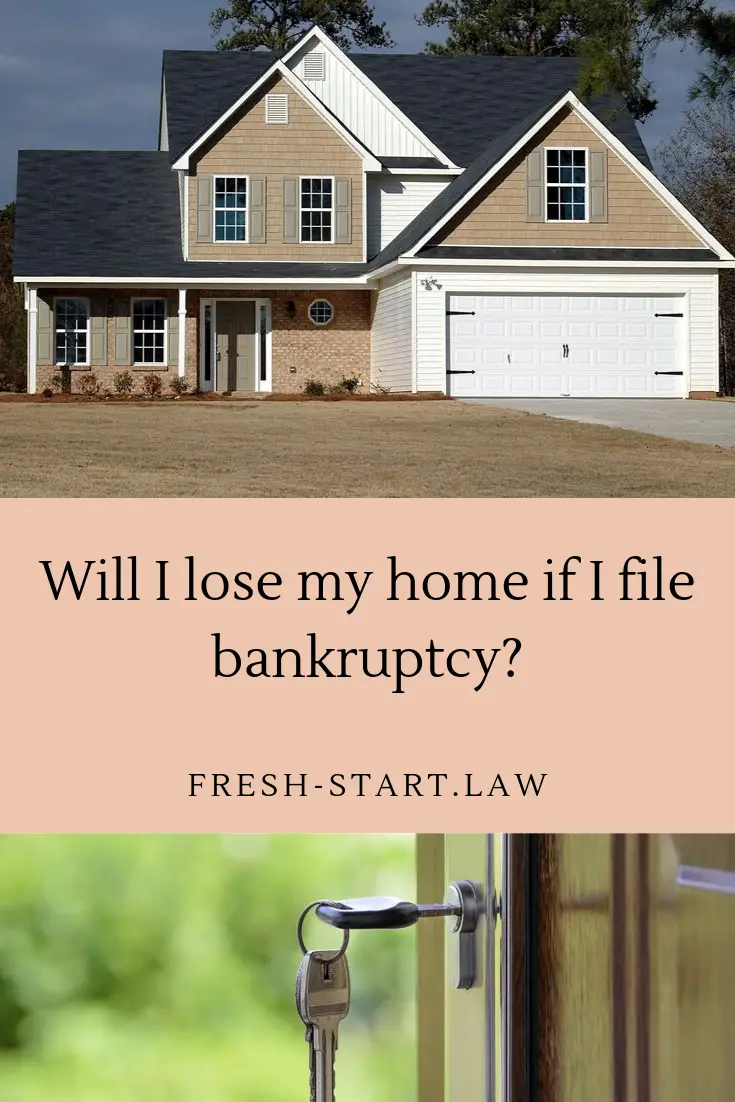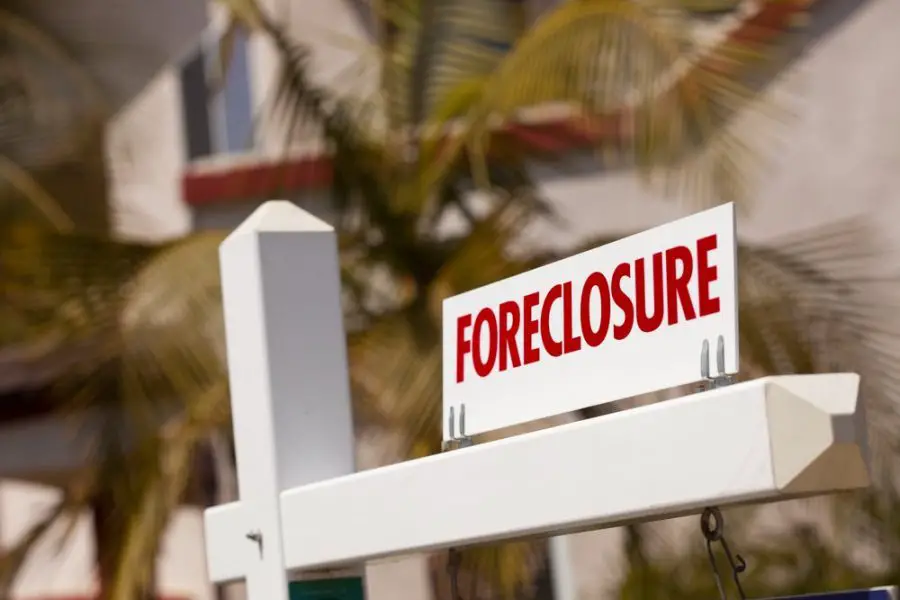Are Debts Affecting Your Ability To Keep Up With Your Mortgage
Ask yourself this question: If I could deal with all of my other debts, would paying my mortgage be easier? We help people answer that question every day.
Its your home, so you always pay your mortgage, but you are falling behind on your credit cards and other bills, and you worry that you may soon also fall behind on your mortgage payments. You worry that you may lose your home.
You can file bankruptcy even if there is equity in your home. If you owe more money to your creditors than the value of what you own you are considered insolvent. If you are insolvent you are eligible to file for bankruptcy or proposal in Canada.
With up-to-date mortgage payments filing for bankruptcy does not mean you will automatically lose your house. In fact, by eliminating other debts that are making it difficult to keep up with your mortgage payments.
What Happens If You Need To File For Bankruptcy
Before going any further, its important that you understand what exactly bankruptcy is. Bankruptcy is a legal process by which an individual or an entity that cannot afford to repay debt can discharge some or all of the debt. Since filing for bankruptcy is a legal process, it is carried out through a court order, which is typically filled by the person or entity that is responsible for the debt.
Whether or not you can keep your home after filing for bankruptcy depends on a couple different factors. These include which chapter of bankruptcy you file, how much of your mortgage youve paid off, and whether or not you will be able to afford to make your monthly payments while dealing with your debt. Chapter 13 bankruptcy is more flexible, but even Chapter 7 filers have the opportunity to keep their residence in some circumstances.
If you do choose to file for bankruptcy, make sure you have the expert help you need. Look for a quality attorney with a website that fully details their experience and the services they offer, like this bankruptcy attorney in Birmingham. Your attorney can explain the differences between Chapter 7, Chapter 11, and Chapter 13 bankruptcy and help you determine which solution makes the most sense for you.
What Does That Mean For You
If youâre current with your mortgage payments â¡ï¸ everything will stay basically the same.
Youâll continue to make your mortgage payments until the house is paid off. Of course, there are some legal nuances, like the discharge of your personal liability on the home loan, and how it protects you in the event you lose your home down the road, but the important takeaway here is this:
If you have enough income to pay your mortgage lender, you can keep your home even after filing Chapter 7 bankruptcy.
Itâs a little more complicated if your home is worth more than what you owe on your mortgage. In that case, you may have to deal with the bankruptcy trustee. More on that below.
Read Also: How Many Times Has Trump Filed Chapter 11
Bankruptcy Exemptions For Farmers
Up to 160 acres of land is exempt if your principal residence is located on that land and is part of your farm. Any personal property necessary for your farming operations over the next 12 months is also exempt from bankruptcy. For more information about bankruptcy exemptions in Alberta, speak to a local Licensed Insolvency Trustee.
British Columbia bankruptcy exemptions
In British Columbia, property exempt from seizure in bankruptcy is set by the provincial government and applies to the equity in an asset. Equity is the difference between the value of the asset and what you owe on the asset.
Q1 How Does The Trustee Decide To Sell My House

The trustee may or may not sell your home depending on its equity value. If its less than the exemption amount, then the trustee must not sell your house. If you have significant equity left, the trustee will sell it.
The goal of selling your property is to get funds that can be used to pay off your unsecured debts. If your home gets sold, the trustee must give you first the exemption amount before paying your debts to the creditors.
Recommended Reading: Will Credit Score Increase After Bankruptcy Falls Off
When You Don’t Want To Or Can’t Pay Homeowner’s Association Or Condominium Dues
You are not liable for payment of dues to a homeowner’s association or condominium association if those dues are assessed before your bankruptcy petition is filed. However, you are liable for dues assessed on property in your name after you file for bankruptcy.
If you file your bankruptcy after the foreclosure sale you avoid having to pay dues assessed after you file, because the property is no longer in your name. Any dues that you owe would be those assessed before your filing, and they would be wiped out in your discharge. The same is true for any code violations, fines, or other new charges related to the home.
Protecting Your Home In Chapter 7 Bankruptcy
The Chapter 7 bankruptcy trustee will sell your nonexempt assets and distribute the proceeds to creditors in exchange for wiping out qualifying debt. Luckily, bankruptcy law protects some of your property from the reach of the creditor through bankruptcy exemptions. If the equity in your property is entirely exempt, the trustee can’t take it. To determine how much equity you have in your home, subtract all mortgages and liens from your home’s current market value.
The federal bankruptcy exemptions, and most state exemptions, provide debtors with a homestead exemption, which protects at least some of the equity in your primary residence. State homestead exemption amounts vary greatly.
Chapter 7 bankruptcy does not provide a way for filers to make up mortgage arrears. Unless you can work something out with the lender, you will eventually lose your home, despite your bankruptcy filing. For more detail, see Can I Keep My Home in Chapter 7 Bankruptcy?
Read Also: Who Is Epiq Corporate Restructuring Llc
What Happens After Filing A Chapter 7 Bankruptcy
Youve met with a bankruptcy attorney, reviewed all your assets, and decided that a Chapter 7 Bankruptcy is the right option for you. Now what? What happens after filing a Chapter 7 Bankruptcy? Find out what you need to know, and how your bankruptcy attorney can help.
This blog post will walk you through the steps of what happens after filing a Chapter 7 bankruptcy. It will cover the automatic stay on collections efforts and the trustees job in distributing your assets. It will also explain how having an experienced bankruptcy attorney can help you protect more of your property through careful use of exemptions.
Will The Deficiency Be Discharged In Bankruptcy
Filing for bankruptcy will eliminate some but not all of your debts. If your lender comes after you for the deficiency, and you file for bankruptcy afterwards, bankruptcy will wipe out the deficiency debt. On the other hand, if your lender forgives the deficiency before you file for bankruptcy, and you don’t qualify for any of the exceptions that would exclude the cancelled debt from your taxable income, filing for bankruptcy afterwards will most likely be of no help in eliminating your tax debt.
If you file for bankruptcy before foreclosure, your mortgage debt will be discharged. Because there is no longer any mortgage debt, after the foreclosure sale there will be no deficiency and no tax liability for any cancelled deficiency debt.
Don’t Miss: Filing For Bankruptcy In Wisconsin
When You Have No Choice
In many cases, you won’t have a choice regarding the timing of your bankruptcy. For example, perhaps you need to file for bankruptcy immediately because of other lawsuits, wage garnishments, or other immediate threats to your money or property. You should always consider your total financial picture when determining the best time to file for bankruptcy.
What Creditors Can Take In A Bankruptcy
Your bankruptcy estate is made up of all your income and property that creditors could potentially get hold of. This includes all the property that you own at the time of the bankruptcy filing, as well as any income that you have earned, even if you havent received it yet.
Even some property that you dont own at the time of filing, such as an inheritance you are expecting, the proceeds of a divorce settlement or decree that you won within 180 days of filing for bankruptcy, could be parceled into your bankruptcy estate. If you are owed a tax refund, that could also go into the pool.
If you have transferred, sold or given away some property two to four years before filing for bankruptcy, and did not receive a reasonably equivalent value in payment, your creditor could lay claim to such property as well.
If you paid $600 or more in debt to a creditor within 90 days before your bankruptcy filing, or paid off $600 or more to a relative or friend in the one-year period before your filing, your creditor could also lay claim to that amount.
Recommended Reading: How Do You File Bankruptcy In Texas
How Do Bankruptcies Affect A Joint Mortgage
If one person files for bankruptcy, that can have an impact if you both are on the mortgage. There are instances where one persons bankruptcy can cause issues with keeping the home, even if more than one of you is on the mortgage. In order to be fully apprised of what can happen, talk to your attorney.
You Will Be Discharged From Bankruptcy

A discharge releases you from the legal obligation to repay the debts you had as of the date you filed for bankruptcy, except for specific types of debts that are excluded by law. These include alimony and child support payments, student loans , court-ordered fines or penalties, and debts arising from fraud.
The timing of your discharge depends on a number of factors, including whether this is your first bankruptcy, and whether you are required to make surplus income payments.
Timing of your discharge from bankruptcy
If this is your first bankruptcy and you are not required to make surplus income payments , you will be eligible for an automatic discharge from bankruptcy in nine months. If your surplus income is higher, your bankruptcy will be extended to 21 months and you will be required to make payments from your surplus income.
Your discharge from bankruptcy will happen automatically if
- the discharge is not opposed by the LIT, a creditor or the Office of the Superintendent of Bankruptcy
- you have attended the mandatory financial counselling sessions and
- this is your first or second bankruptcy.
To ensure that a greater percentage of debts is repaid to creditors, the following standards set out when an automatic discharge will occur.
Timing of your discharge from bankruptcy , First Bankruptcy| First bankruptcy |
|---|
| Surplus income is greater than $200 per month | 36 months after filing |
Discharge hearing
Recommended Reading: Chapter 7 Bankruptcy Eviction
Will I Lose All My Assets When I File For Bankruptcy
Contrary to popular belief, when you file for bankruptcy, you will not lose everything. Each province and territory has its own exemptions to the bankruptcy law that outline which of your assets, and how much equity, you are allowed to retain. There are also certain costs and processes that apply across the country. Lets take a look at them below.
How Long Will I Be Bankrupt
The length of a persons bankruptcy and the date of ones discharge from bankruptcy depends on two basic factors, the first being, have you been bankrupt before, and the second is how much do you make. The time-frame for discharges from bankruptcy, if you complete all your bankruptcy duties, are as follows:
First Time Bankrupt Minimum period of 9 months, to a max of 21 months.
Second Time Bankrupt Minimum period of 24 months, to a max of 36 months.
Third and Subsequent Barring any extenuating circumstances, 36 to 48 months.
Read Also: Kodak Bankruptcy Filing
You Are Considering Chapter 13 Bankruptcy
In Chapter 13 bankruptcy, you make payments to your creditors over a period of three to five years. In return, you may keep your property.
The benefit of filing a Chapter 13 in foreclosure is that you may be able to pay off your overdue mortgage payments over the course of your repayment plan. At the end of your plan, you will be current with your mortgage again. You would not have this opportunity if you file for bankruptcy after your home is sold at foreclosure.
Lottery Winnings Or Inheritances
If you win the lottery or receive an inheritance after youve filed, but before youve been discharged from bankruptcy, that money must be given to the LIT, who will distribute it to your creditors. If the amount youve received is greater than the debts you owed, you can keep whats left after your creditors have been paid off.
You May Like: Oregon Bankruptcy Means Test
Cooperating With The Trustee
Bankruptcy filers have an obligation to cooperate with the trustee throughout their bankruptcy case. Filers will need to provide the trustee with a copy of the tax return for the year the case was filed.
After the meeting of creditors the trustee will file a Report of No Distribution indicating that no funds are going to be distributed to your creditors or a Notice of Claims Bar Date stating the due date for creditors to file claims to receive funds in your bankruptcy. Other than these filings, ideally you will not hear from the trustee after the meeting of creditors.
What To Know Before Filing For Bankruptcy
As a fallout of your bankruptcy filing, your for a 10-year period if it is a Chapter 7 bankruptcy, and a seven-year period for a Chapter 13 bankruptcy.
Even though you are not legally required to hire a lawyer to handle your bankruptcy, it may be in your best interest to do so. You may even be able to find free legal services.
Read Also: How Many Times Did Donald Trump File Bankruptcy
How Does My Income Affect The Length Of My Bankruptcy
The Bankruptcy and Insolvency Act, Directives and Rules, set out federal government income guidelines which stipulate income sharing requirements depending on the size of ones family. Any income earned by the family over and above the federal government income guideline, while you are bankrupt, must be shared equally with your creditors. For example, if your family income exceeds the guideline by $200.00, you are expected, as part of your bankruptcy duties, to pay ½ of that, or $100.00 to your bankruptcy estate. In essence, the more you make, the more you are expected to share with your creditors.
For more information regarding the federal government income guideline that would be applicable to your specific situation, and how much you would have to pay if you were to go bankrupt, please do not hesitate to contact us, either by giving us a call, or by using our Contact Us feature located in the upper right hand corner of each page on this website. We will be happy to provide you with a complete outline of the income guidelines and how they will affect you or your family.
How Much Equity Is In Your Home

If your mortgage payment is up-to-date, your next step will be determining how much equity exists. You’ll start by valuing your home. Then you’ll subtract any outstanding mortgage balance from the home value. The equity would be the amount you’d have in your pocket if you were to sell the house.
If you don’t have any equity, you’re in good shapetrustees don’t sell houses without equity. Otherwise, you’ll need to be able to protect your equity with a bankruptcy exemption to avoid losing the home in Chapter 7 bankruptcy.
Learn more about filing for bankruptcy if you have equity in your home.
Recommended Reading: Has Donald Trump Filed For Bankruptcy
Aug What Happens To A Foreclosure If You File Bankruptcy
There are many posts in these pages and on Mortgage Law Network about the types of foreclosures and the fact that a bankruptcy filing can stop the process. But what happens then? Just because in most states a bankruptcy stops a foreclosure , it doesnt end it.
The foreclosure process, in spite of the bankruptcy often continues. When a bankruptcy is filed, however, the automatic a stay that is created will stop any further proceeding. The stay lasts until one of two things happens: the bankruptcy ends by discharge or dismissal, or the creditor gets the court to grant them relief from the stay to go forward.
There is a provision of the bankruptcy code ), however, that if the property is needed for an effective reorganization of the debtor in a chapter 13 bankruptcy, and the debtor is able to make normal monthly payments than the mortgage company cant foreclose. But the filing of a chapter 13 doesnt end the foreclosure process it merely stops it. The mortgage company, if notice of sale has already been filed, can appear at the time and place of sale and continue it to another date to see if the bankruptcy has been dismissed by then. And, unless you were present when the change in sale dates was announced, they dont have to tell you when or where the next sale is scheduled.
I guess the good news is that after a year, the mortgage company would have to send new notices of a sale if it wanted to go forward.